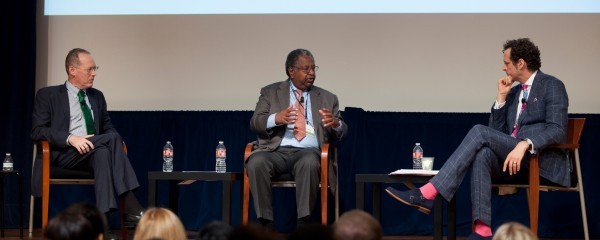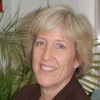
UCSF Global Health Sciences Hosts Discussion Featuring DCP3 Contributors
University of California, San Francisco's Global Health Sciences hosted a one-day event titled "The Science of Global Health: What's Next?" on October 2, 2014 at the UCSF Mission Bay Conference Center. Event participants learned about what's next in global health from a full line-up of speakers, many of whom are DCP3 contributors. DCP3 Essential Surgery volume lead editor Haile Debas shared the stage with renowned humanitarian Paul Farmer, to discuss surgery needs in low- and middle-income countries. Dr. Farmer is authoring the foreward for the forthcoming DCP3 volume on Essential Surgery.
Insider conversation: Essential Surgery
According to the Lancet Commission on Global Surgery, more than 2 billion people worldwide lack access even to basic surgical care. Lack of access to surgery can create permanent incapacities, with an estimated 11-15% of disability in the world due to surgically treatable conditions. Panelists discussed what is currently being done to make essential surgical services available to the world's poorest populations.
- Moderator: Gavin Yamey, DCP3 Communications Technical Advisory Group Member
- Panelist: Haile Debas, Essential Surgery volume editor
- Panelist: Paul Farmer, Essential Surgery volume foreward author






